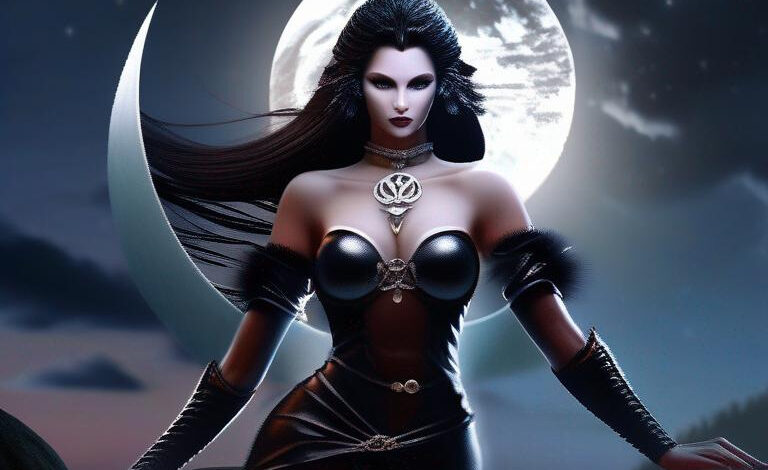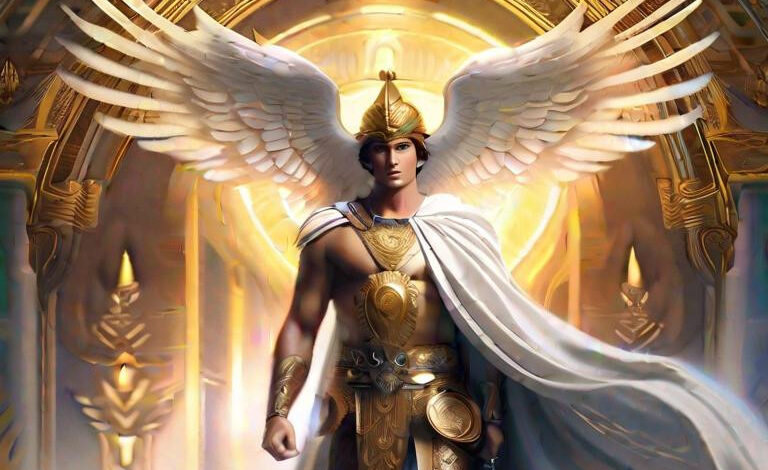
The Twelve Gods of Mount Olympus, a captivating and diverse pantheon of ancient Greek mythology, reign supreme as the most prominent and influential deities of their time. Nestled atop the mythical Mount Olympus, these Olympian gods and goddesses embody the myriad facets of human nature and the forces that shape the cosmos. From Zeus, the mighty king of the gods, to Hestia, the serene guardian of the hearth, each member of this divine assembly possesses unique attributes and resonates with the hopes, fears, and aspirations of ancient Greek society.
At the pinnacle of this divine hierarchy stands Zeus, the all-powerful ruler of the gods, who wields thunder and lightning to maintain order and justice. Alongside him, his sister and counterpart, Hera, commands the domain of marriage and fertility, embodying the essence of matrimony and family life. Meanwhile, Poseidon, the awe-inspiring god of the seas, commands the turbulent waters and holds sway over earthquakes, shaping the lands and shores of the mortal world.
Not to be outshined, Athena, the wise and fierce goddess of wisdom and warfare, exemplifies strategic prowess in battle and the intellect that shapes the course of mortal endeavors. Apollo, the radiant god of light, music, and prophecy, exudes creativity and enlightenment, inspiring both mortals and fellow gods with his artistic talents and divine revelations.
Aphrodite, the enchanting goddess of love and beauty, captivates hearts with her irresistible allure and governs the realm of romantic entanglements. Ares, the formidable god of war and conflict, stands as a symbol of the raw and chaotic forces that drive men into battle and shape the destiny of nations.
With a softer touch, Demeter, the nurturing goddess of agriculture and fertility, blesses the earth with her bountiful harvests and sustains life’s cycles. Hermes, the swift and cunning messenger of the gods, bridges the divide between Mount Olympus and the mortal realm, facilitating divine communication and safeguarding travelers along their journeys.
Lastly, the serene and gentle Hestia presides over the hearth and home, representing the core of familial bonds and the sanctity of domestic life.
In this rich and captivating pantheon, the Twelve Gods of Mount Olympus emerge as timeless archetypes, reflecting the intricate tapestry of human emotions, relationships, and beliefs. Their stories, intertwined with those of mortals, resonate across the ages, offering insights into the ancient Greek psyche and the profound relationship between the divine and the mortal worlds. Join us on a journey through the realms of Mount Olympus, as we explore the captivating stories and enduring legacies of these formidable and cherished deities.
Zeus
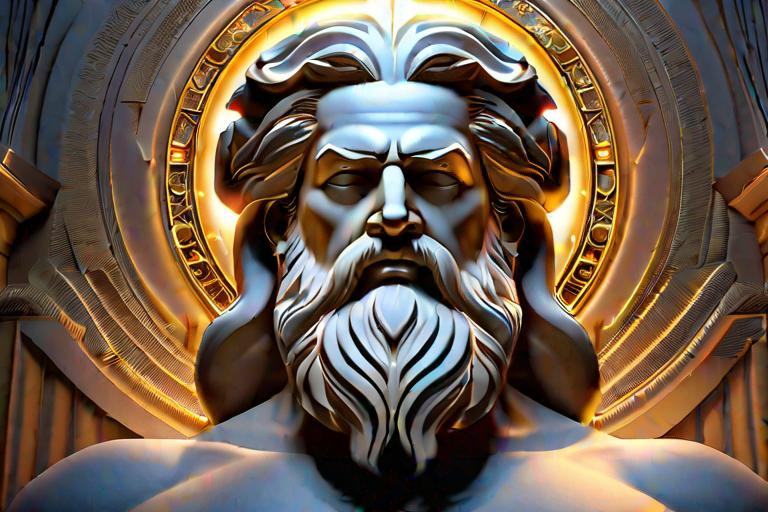
In the pantheon of ancient Greek mythology, the Gods of Mount Olympus stand as powerful, immortal beings, each embodying different aspects of life and nature. At the helm of this divine assembly sits Zeus, the formidable ruler of the Olympian Gods and the god of sky and thunder. As the son of Titans Cronus and Rhea, Zeus emerged victorious in the epic Titanomachy, overthrowing his father and securing his place as the king of the Gods.
Often depicted with a regal presence and a thunderbolt in hand, Zeus commands respect and awe from both gods and mortals. His dominion extends over the heavens, and he holds sway over the weather, unleashing mighty storms and lightning when his wrath is invoked. Despite his formidable nature, Zeus is not without a sense of justice, being the enforcer of law and order, as evidenced by the eternal scales of justice he wields, symbolizing impartial judgment.
Beyond his thunderous exterior, Zeus is also known for his insatiable amorous pursuits. He is the father of numerous demigods and legendary heroes, often wooing mortal women in various guises. His most iconic love affair was with Hera, his sister and wife, who serves as the queen of the Gods. Though their relationship was tumultuous due to Zeus’s infidelity, Hera remains a formidable force and an essential figure in the Olympian realm.
Zeus’s position as the king of the Gods is further solidified by his supreme authority in the divine council. He presides over gatherings where the Gods deliberate, decide, and occasionally bicker about mortal affairs and the fate of the cosmos. This role grants him the final word on matters of great importance and makes him the ultimate arbiter of disputes.
Apart from his divine responsibilities, Zeus is celebrated through grand festivals and religious ceremonies across ancient Greece. Cities often boasted temples and sanctuaries dedicated to him, where people would make offerings and seek his favor or protection. One of the most famous examples is the Temple of Zeus at Olympia, which housed one of the Seven Wonders of the Ancient World, the massive ivory and gold statue of the god created by the renowned sculptor Phidias.
Zeus’s complexity is further revealed through his interactions with mortals. He can be both a benefactor, granting boons and blessings, as well as a stern punisher, doling out retribution to those who defy the natural order or provoke his ire. As a testament to his godly authority and abilities, Zeus’s name and persona permeate various aspects of Greek society, from art and literature to philosophy and politics.
Zeus stands as the mighty and multifaceted ruler of the Olympian Gods, wielding power over the heavens, thunder, and lightning. His position as king is mirrored in his commanding presence and sense of justice. Despite his occasional flaws and tumultuous relationships, Zeus’s influence and reverence among the ancient Greeks were undeniable, leaving a lasting legacy that continues to fascinate and inspire us to this day.
Hera
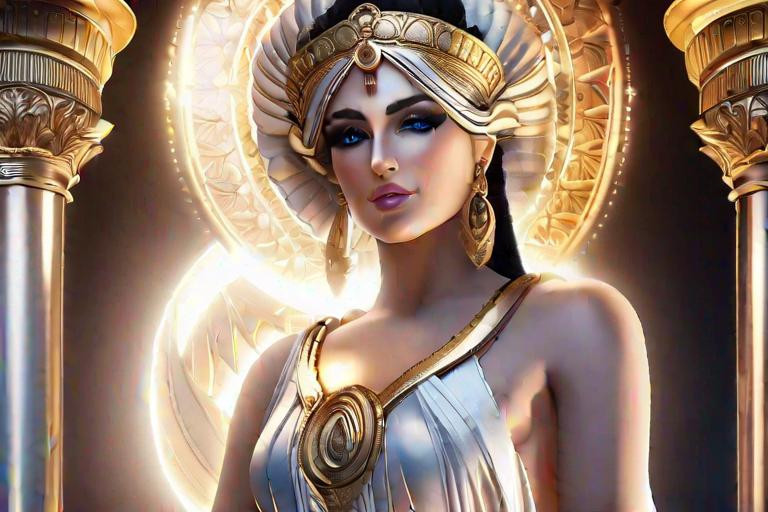
In the pantheon of the Twelve Gods of Mount Olympus, Hera occupies a prominent position as the queen of the Olympian Gods and the goddess of marriage, family, and childbirth. As the daughter of Titans Cronus and Rhea, and sister and wife to Zeus, her role is pivotal, symbolizing the union of the divine order. Hera is often portrayed as a majestic and regal figure, radiating an aura of authority and dignity.
One of Hera’s defining attributes is her devotion to protecting the sanctity of marriage and family. She is the patron goddess of married women, and her blessing is sought by couples embarking on the journey of matrimony. As the divine embodiment of wedlock, Hera’s domain extends beyond the realm of Gods, and she watches over mortal marriages, ensuring their stability and harmony. However, her jealousy and vengeful nature towards Zeus’s infidelity, which resulted in numerous affairs and illegitimate children, is a recurrent theme in Greek mythology.
Despite her reputation for jealousy, Hera also possesses a strong and nurturing side. As the goddess of childbirth, she presides over the welfare of mothers and newborns, offering protection and assistance during labor and beyond. One of her most notable acts of maternal compassion was the protection she granted to Hercules, Zeus’s illegitimate son born of an affair, who faced a life full of trials and hardships.
Hera’s influence extended beyond the domestic sphere, as she played an essential role in guiding the destiny of various cities and regions across ancient Greece. In some cities, she was revered as a protective deity, guarding the inhabitants and bestowing prosperity upon them. However, in other areas, she was feared, as she was known to unleash her wrath upon those who defied her will or those who wronged her.
In the divine council, Hera holds a place of respect and authority, and her voice is heard on matters concerning the Gods and their interactions with mortals. While her relationship with Zeus was complex, she remains a powerful figure in her own right, often asserting her independence and influence.
Hera’s iconic symbols include the peacock, a bird renowned for its vibrant and majestic plumage, which represents her regal nature. Additionally, the pomegranate, a fruit associated with fertility and abundance, is often linked to her role as the goddess of marriage and childbirth.
Temples and shrines dedicated to Hera were widespread throughout ancient Greece, with one of the most renowned being the Heraion at Samos, a grand sanctuary that attracted devotees from far and wide. Her festivals, such as the Heraia, were celebrated with enthusiasm, and women participated in various athletic events to honor the goddess.
Hera stands as a multifaceted deity, embodying both the virtues and complexities of womanhood. Her commitment to the institution of marriage and family, coupled with her powerful influence over aspects of mortal life, make her a revered and sometimes feared figure in Greek mythology. As a goddess whose actions and emotions mirror the strengths and frailties of humanity, Hera’s enduring presence in ancient Greek culture cements her place as a fascinating and essential character in the pantheon of the Twelve Gods of Mount Olympus.
Poseidon
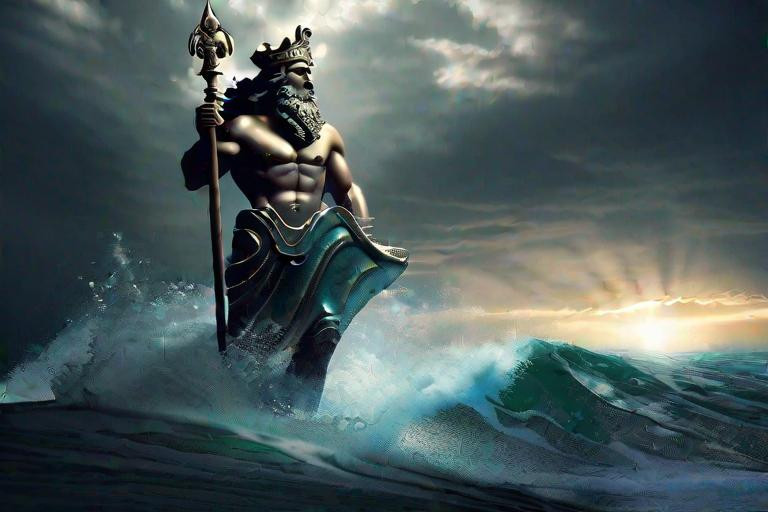
Poseidon, the formidable god of the sea, earthquakes, and horses, holds a significant place among the Twelve Gods of Mount Olympus in ancient Greek mythology. As the brother of Zeus and Hades, and one of the mighty children of Titans Cronus and Rhea, Poseidon commands immense power and respect, reflecting the vastness and unpredictability of the sea he governs.
Often depicted with a trident in hand, Poseidon exudes an air of authority and strength befitting his divine status. The trident, a three-pronged spear, symbolizes his dominion over the seas and his ability to wield the forces of nature at his will. Poseidon’s connection to water extends beyond the oceans; he is also the deity responsible for freshwater springs, lakes, and rivers, essential sources of life and sustenance.
The sea, with all its tempestuous beauty, is both Poseidon’s realm and his temperament. He can be both benevolent and wrathful, bestowing calm waters and favorable winds upon sailors or unleashing devastating storms and tidal waves when his anger is provoked. Ancient seafarers and coastal communities paid homage to Poseidon, offering prayers and sacrifices to ensure safe voyages and bountiful catches.
The story of the creation of the first horse, a creature so emblematic of his domain, is attributed to Poseidon. Legend has it that he struck the earth with his trident, causing a spring to gush forth, which gave life to the first horse, thus solidifying his association with these majestic creatures.
Despite his powerful nature, Poseidon’s influence is not limited to the seas alone. His control over earthquakes, which arise from the shifting of tectonic plates beneath the Earth’s surface, links him to the realm of Hades and the underworld. When provoked or slighted, Poseidon was known to cause destructive earthquakes, reminding mortals of his potent and unpredictable nature.
Like his fellow Olympians, Poseidon was not without his share of romantic entanglements. One of his most famous love affairs was with Amphitrite, a sea nymph who initially resisted his advances. Ultimately, his efforts to win her over succeeded, and she became his devoted wife and queen of the seas.
Throughout ancient Greece, Poseidon was venerated through numerous temples and shrines, with the most notable being the Temple of Poseidon at Cape Sounion, which offered breathtaking views of the Aegean Sea. Festivals like the Poseidonia were celebrated in his honor, emphasizing his role as a protector and provider for coastal communities.
Poseidon’s influence extended beyond the realm of mythology and into the daily lives of the Greeks, where he was invoked for favorable weather, plentiful fishing, and successful maritime ventures. His role in shaping the destiny of the mortal world, both as a benevolent provider and a formidable enforcer, illustrates his complex and essential place in ancient Greek culture.
Poseidon, the god of the sea, earthquakes, and horses, commands awe and respect among the Twelve Gods of Mount Olympus. His domain over the oceans, coupled with his capacity to unleash both blessings and disasters, highlights his power and capricious nature. As a deity revered and feared by sailors and coastal dwellers alike, Poseidon’s legacy endures as an influential figure in the rich tapestry of ancient Greek mythology and remains an enduring symbol of the sea’s majesty and might.
Demeter
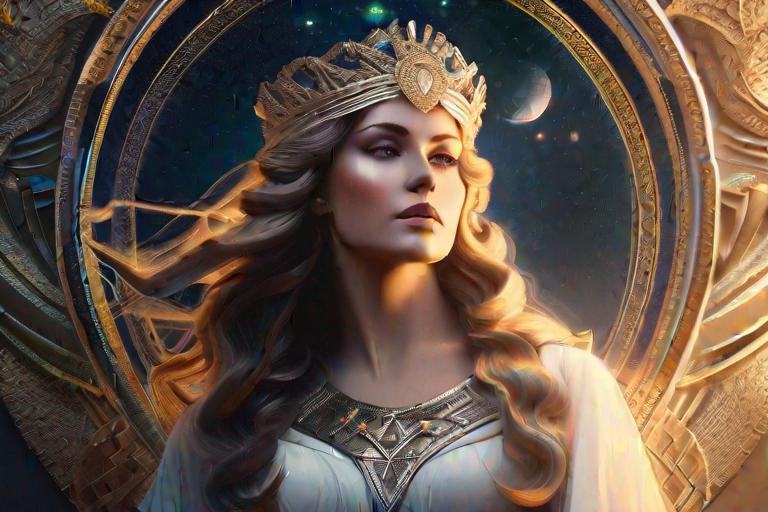
Demeter, the goddess of agriculture, fertility, and the harvest, is a beloved and essential figure among the Twelve Gods of Mount Olympus in ancient Greek mythology. As the daughter of Titans Cronus and Rhea and sister to Zeus, Demeter’s domain lies in the bountiful earth and the cycle of life, making her a nurturing and life-sustaining deity.
Demeter’s significance in Greek culture stems from her role as the caretaker of the Earth’s fertility. Her influence over the growth of crops and the success of agricultural endeavors made her a cherished figure among farmers and rural communities. The changing seasons, particularly the cycle of planting, growth, and harvest, were believed to be a reflection of her emotional state, resulting in the myth of Demeter and Persephone.
The myth of Demeter and Persephone is one of the most renowned in Greek mythology. It tells the story of how Hades, the god of the underworld and brother of Zeus, abducted Demeter’s daughter, Persephone, and took her to his realm. In her grief and anger, Demeter caused a devastating famine, forcing Zeus to intervene. A compromise was reached, and Persephone was allowed to return to the world of the living for part of the year, symbolizing the arrival of spring and the renewal of life after the barrenness of winter.
As a testament to her nurturing nature, Demeter is often depicted holding a sheaf of wheat or barley, representing the abundance and prosperity she bestows upon the land. Her benevolence extended to mortals, and she was often invoked during planting and harvest seasons, with offerings and prayers made to ensure fruitful crops and a bountiful harvest.
The Eleusinian Mysteries, a secretive and highly regarded religious ritual in ancient Greece, were dedicated to Demeter and Persephone. These mysteries, held at the sacred site of Eleusis, involved elaborate ceremonies and initiations, promising initiates a glimpse into the afterlife and the prospect of a more favorable existence beyond death.
Demeter’s maternal instincts were not limited to the crops and the earth. In her motherly role, she also took care of Dionysus, the god of wine, who was another one of Zeus’s illegitimate children. She protected and nurtured him after his mother, Semele, died prematurely, which showcases her compassion and nurturing side even beyond her direct family.
The cult of Demeter was widespread across ancient Greece, and various sanctuaries were dedicated to her worship. The most renowned of these was the Temple of Demeter at Eleusis, which served as the focal point of the Eleusinian Mysteries and attracted devotees from all over the Hellenic world.
Demeter, the goddess of agriculture and fertility, embodies the nurturing and life-giving aspect of the natural world. Her control over the earth’s bounty and the changing seasons emphasizes her vital role in sustaining life on Earth. The myth of Demeter and Persephone highlights her deep emotional connection to the cycle of life and death, while her enduring presence in religious ceremonies and agricultural practices showcases her lasting impact on ancient Greek society. As a symbol of abundance and maternal care, Demeter’s legacy endures as a cherished and revered deity, revered by mortals and fellow gods alike.
Athena
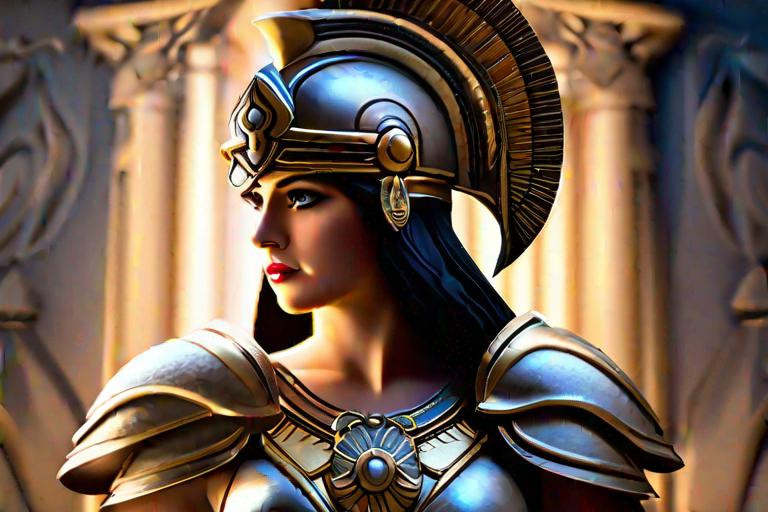
Athena, the goddess of wisdom, warfare, and crafts, is one of the most revered and multifaceted deities among the Twelve Gods of Mount Olympus in ancient Greek mythology. As the daughter of Zeus, born fully grown and armored from his forehead, she embodies intellect, strategy, and the power of the mind. Her iconic attributes include the helmet, shield, and spear, symbols of her prowess in battle and her role as a protector.
Often depicted as a serene and thoughtful figure, Athena’s wisdom is unparalleled among the gods. She serves as a counselor to Zeus and is known for her strategic acumen, guiding heroes and mortals with sagacity during times of conflict and crisis. Athena’s wisdom extends beyond the realms of war and conflict; she is also the patron of various crafts, including weaving, pottery, and metalwork, which were seen as extensions of intellect and skill.
Athena’s intelligence and strategic brilliance make her a formidable warrior, and she is hailed as one of the greatest champions in the divine world. In contrast to her brother Ares, the god of chaotic war, Athena represents disciplined and just warfare, using wisdom and cunning to achieve victory rather than raw aggression. Her assistance was eagerly sought by both mortals and other gods, particularly in times of great battles and quests.
As the guardian of cities, Athena was revered as the protectress of several key ancient Greek cities, including Athens, her namesake. According to myth, the city was named in her honor after she won a contest against Poseidon to determine its patron deity. In her gift to the Athenians, the olive tree, she offered not just sustenance but also a symbol of peace and prosperity.
Athena’s role as a divine patron of crafts and learning is evident in the importance placed on her worship across Greece. The Parthenon, the iconic temple atop the Acropolis in Athens, was dedicated to her, housing an impressive statue of the goddess crafted by the renowned sculptor Phidias. Festivals, such as the Panathenaea, were held in her honor, celebrating not only her military prowess but also the cultural achievements of the city.
In addition to her prominent position among the gods, Athena was highly respected by heroes such as Odysseus and Perseus, both of whom she aided in their quests. Her interactions with mortals were often characterized by fairness and benevolence, as she was known to reward acts of courage, wisdom, and loyalty.
Athena’s strong connection to her father, Zeus, further exemplifies her position of power in the divine hierarchy. She represents the essence of his divine wisdom and the embodiment of his intellect, earning her a place of authority in the divine council. Her level-headed and just demeanor earned her respect and admiration even from other gods.
Athena, the goddess of wisdom, warfare, and crafts, stands as a symbol of intellect, strategy, and disciplined battle among the Twelve Gods of Mount Olympus. Her wise counsel and martial prowess, combined with her patronage of various crafts and cities, make her a multifaceted and revered deity in Greek mythology. As a paragon of wisdom and a champion of just warfare, Athena’s legacy endures as an inspiration for seekers of knowledge and champions of virtue.
Apollo

Apollo, the radiant god of light, music, prophecy, and healing, is one of the most admired and celebrated deities among the Twelve Gods of Mount Olympus in ancient Greek mythology. As the son of Zeus and Leto, Apollo’s birthplace was the mystical island of Delos. His attributes include the lyre, the laurel wreath, and the bow and arrows, symbolizing his artistic talents and archery skills.
Apollo’s significance in Greek culture stems from his multifaceted nature. As the god of light, he is associated with the sun, bringing illumination and warmth to the world. This aspect of Apollo is closely linked to his role as a god of prophecy, for he was believed to communicate divine revelations to mortals through his oracle at Delphi. The Oracle of Delphi was renowned throughout ancient Greece, and kings, generals, and individuals sought Apollo’s guidance on various matters, believing his wisdom to be unparalleled.
In addition to his connection to prophecy, Apollo’s talents extended to the realm of music and poetry. He was a master musician, often depicted playing his golden lyre, which he skillfully used to captivate both gods and mortals. His poetic prowess was also revered, and he was considered the patron of the Muses, inspiring poets, musicians, and artists to create works of great beauty.
Apollo’s dual nature as a healer further exemplifies his complexity. He was known as the god who could bring both illness and cure. In times of plague or sickness, Apollo’s wrath might be invoked, leading to widespread suffering. Conversely, he was also called upon as a healer, capable of bringing relief and restoration to the afflicted. As the god of healing, he was sometimes worshiped under the title Apollo Soter, or “Apollo the Savior.”
Beyond his role as a god of light and arts, Apollo is also associated with the domains of archery and athleticism. He was considered the ideal athlete, and competitions held in his honor, such as the Pythian Games, attracted athletes from all over Greece. Apollo’s connection to archery, hunting, and sports symbolizes the balance between the cultivated intellect and the primal instincts.
As a deity admired and respected by both gods and mortals, Apollo was often called upon to arbitrate disputes and offer mediation. His impartiality and sense of justice earned him a reputation as a fair judge among the Twelve Gods. His wisdom and guidance were sought in times of conflict and decision-making, and his word carried great weight in the divine council.
Temples dedicated to Apollo were abundant throughout ancient Greece, with one of the most significant being the Temple of Apollo at Delphi, where the famous oracle resided. The Pythian Games, held every four years at Delphi, further solidified Apollo’s prominence in Greek society, attracting crowds and participants from across the Hellenic world.
Apollo, the god of light, music, prophecy, and healing, exemplifies a diverse range of attributes among the Twelve Gods of Mount Olympus. His connection to the sun and the gift of prophecy make him a source of divine knowledge and guidance. His artistic talents and role as a healer represent the cultivation of intellect and compassion. As a revered patron of poetry, music, and athletic endeavors, Apollo’s legacy endures as an inspiration for artistic expression, intellectual pursuit, and physical excellence. His multifaceted nature and broad influence in various aspects of Greek culture solidify his place as a cherished and multifarious deity in ancient Greek mythology.
Artemis
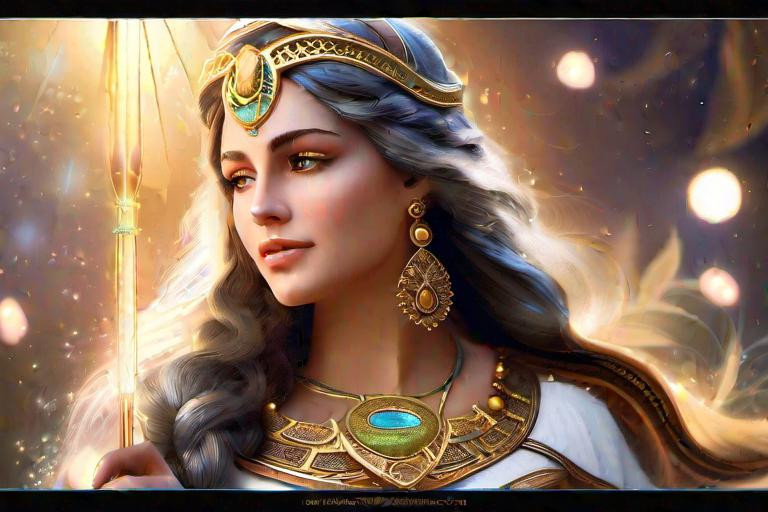
Artemis, the ethereal goddess of the hunt, wilderness, and childbirth, is a captivating and revered figure among the Twelve Gods of Mount Olympus in ancient Greek mythology. As the twin sister of Apollo, born to Zeus and Leto on the sacred island of Delos, she embodies the untamed beauty of nature and the power of femininity.
Artemis is often depicted as a young, graceful huntress, carrying a bow and arrows, and accompanied by her loyal hunting dogs. As the goddess of the hunt, she roams the wilds, leading the nymphs and protecting the forests and creatures that inhabit them. Her hunting prowess is unmatched, and she is renowned for her skill in tracking and capturing prey.
In addition to her role as a huntress, Artemis is the protector of young girls and women, especially during childbirth. As the midwife of the gods, she ensures safe deliveries and watches over the well-being of mothers and newborns. Her nurturing and protective side contrast with her fierce and independent nature, highlighting the duality of her character.
Artemis’s determination to preserve her virginity is a defining aspect of her identity. She is one of the few Olympian goddesses to remain chaste, dedicating herself entirely to her divine duties. As the maiden goddess, she exemplifies purity and self-reliance, embodying the virtues of independence and female empowerment.
As the guardian of wildlife and the wilderness, Artemis is often seen as a fierce protector of animals and the environment. She punishes those who harm or disrespect the natural world, displaying her wrath upon hunters who transgress her sacred domains. Her association with the moon further strengthens her connection to the rhythms of nature and the wild.
Artemis’s complex persona is evident in her interactions with both gods and mortals. She was revered by women and girls, who sought her guidance and protection in various stages of life. Her nymph attendants, the Oreads, and the Naiads, embody the spirit of the natural world and exemplify Artemis’s affinity for untamed beauty.
The city of Ephesus, in present-day Turkey, was home to one of the most impressive temples dedicated to Artemis, known as the Temple of Artemis, one of the Seven Wonders of the Ancient World. Devotees from far and wide made pilgrimages to this grand sanctuary, celebrating the goddess through rituals and festivals.
Artemis’s mythology is rich with tales of her involvement in various adventures and conflicts. She assisted heroes like Orion and the twin brothers, Castor and Pollux, showcasing her divine favor and protection over those who earned her respect. She also played a pivotal role in the stories of Atalanta and Iphigenia, further illustrating her influence in the mortal realm.
Artemis, the captivating goddess of the hunt, wilderness, and childbirth, holds a multifaceted and revered position among the Twelve Gods of Mount Olympus. Her connection to the untamed beauty of nature, her dedication to protecting women and young girls, and her role as a fierce and independent huntress make her an iconic and empowering figure in Greek mythology. As the maiden goddess, Artemis’s legacy endures as a symbol of female strength, self-reliance, and the harmonious relationship between humans and the natural world.
Hephaestus
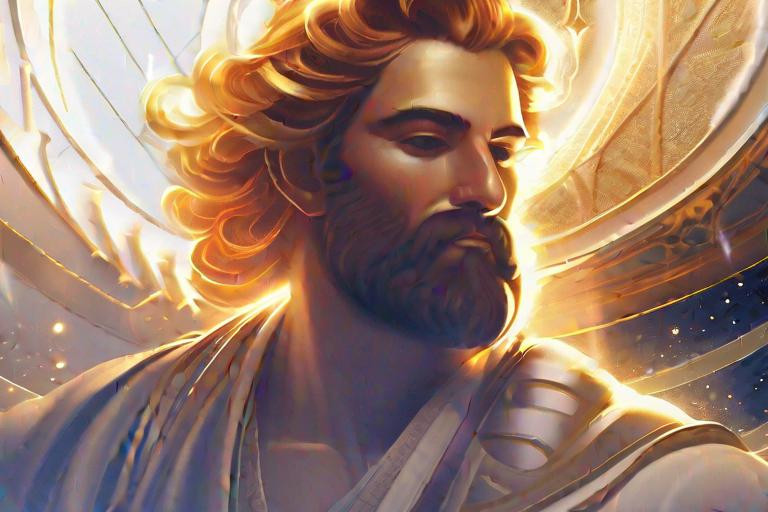
Hephaestus, the ingenious god of blacksmiths, craftsmen, and fire, occupies a unique and essential role among the Twelve Gods of Mount Olympus in ancient Greek mythology. Born to Hera alone, Hephaestus was said to have been thrown from Mount Olympus by his mother due to his physical deformities. However, he was rescued by the sea nymphs Thetis and Eurynome, who raised him in an underwater cave.
Despite his physical appearance, Hephaestus possessed unparalleled skills as a blacksmith and artisan. He was the master of the forge, crafting magnificent weapons, armor, and artifacts for the gods and heroes. His workshop was believed to be situated beneath Mount Olympus or inside volcanoes, where he used fire and his natural talents to mold and shape metals with exquisite precision.
Hephaestus’s most iconic creations were his automatons, mechanical servants that assisted him in his work. Among his automatons was Talos, a bronze giant who guarded the island of Crete. His technological prowess was also evident in his design and construction of Achilles’ legendary armor during the Trojan War, a testament to his unparalleled craftsmanship.
Despite his considerable talents, Hephaestus faced adversity among the gods. In one famous tale, he sought revenge against his mother, Hera, for her mistreatment by crafting a magnificent golden throne for her. Unbeknownst to Hera, the throne was designed to ensnare her upon sitting, trapping her until the other gods intervened and secured Hephaestus’s forgiveness.
Hephaestus’s trials continued with his marriage to Aphrodite, the goddess of love and beauty. Although their union was arranged by Zeus, Aphrodite was unfaithful to Hephaestus, engaging in various affairs with gods and mortals alike. Yet, Hephaestus bore the infidelity with a combination of heartache and resignation, further exhibiting his emotional complexity.
As the god of fire, Hephaestus embodied both the creative and destructive aspects of this elemental force. While fire was the source of his artistic endeavors and metalworking, it could also be harnessed as a devastating weapon. In this role, Hephaestus was associated with volcanic eruptions and earthquakes, events that were believed to be caused by his fiery temperament.
Hephaestus’s association with fire and metalworking extended to his worshippers, particularly among blacksmiths and artisans. Temples and shrines dedicated to him were found in various parts of ancient Greece, including the significant cult center at Lemnos. Festivals and ceremonies honoring Hephaestus were held, emphasizing the importance of craftsmanship and technological innovation in Greek society.
Despite his initial rejection by his mother and some challenges among the gods, Hephaestus was highly regarded for his contributions to the divine world. As the patron of craftsmen, he embodied the values of skill, ingenuity, and perseverance, serving as a model for mortal artisans and engineers alike.
Hephaestus, the ingenious god of blacksmiths and craftsmen, stands as a complex and vital figure among the Twelve Gods of Mount Olympus. His skill in metalworking and the creation of automatons demonstrated his mastery of technology, while his emotional struggles and association with fire showcased the multi-faceted nature of his character. As a deity revered for his craftsmanship and technological prowess, Hephaestus’s legacy endures as an emblem of creativity, resilience, and the enduring power of the human spirit.
Aphrodite
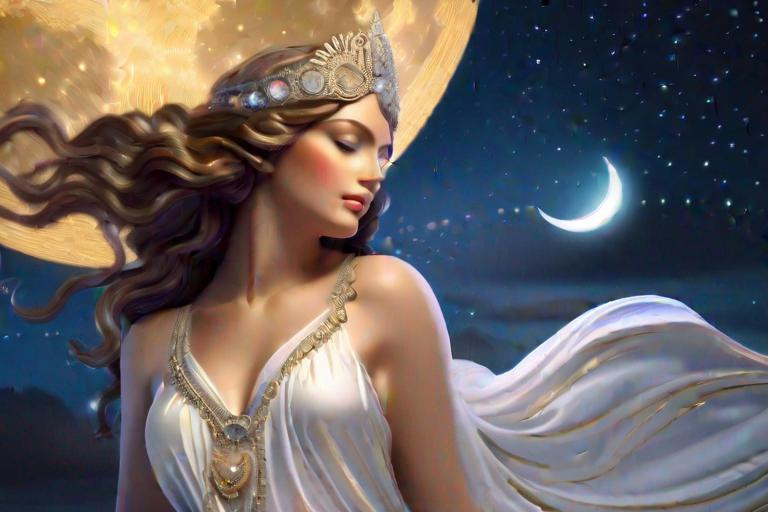
Aphrodite, the captivating goddess of love, beauty, and desire, holds an enchanting and influential position among the Twelve Gods of Mount Olympus in ancient Greek mythology. Born from the sea foam off the coast of Cyprus, she emerged from the waters fully grown and radiant, capturing the hearts of gods and mortals alike with her irresistible allure.
As the goddess of love and desire, Aphrodite possesses an innate power to kindle passion and affection. Her beauty is unparalleled, and her divine charm effortlessly ensnares the hearts of gods, mortals, and even the most steadfast heroes. The gods themselves were not immune to her charms, as her love affairs with Ares, the god of war, and other deities are a recurring theme in Greek mythology.
Aphrodite’s influence extended beyond mere infatuation, as she presided over the institution of marriage and romantic relationships. As the protector of marital unions, her blessing was sought by those seeking love, companionship, and fertility. While her role as a goddess of love could bring bliss and happiness, it could also lead to jealousy and conflict, as seen in her famous involvement in the tale of Paris and the golden apple that sparked the Trojan War.
Beyond her role as the goddess of love, Aphrodite’s sphere of influence encompassed beauty and aesthetics. She was the embodiment of physical beauty, inspiring artists, poets, and sculptors to create masterpieces in her likeness. As the patron of beauty, she encouraged mortals to appreciate the beauty of the world around them, cherishing the artistic expressions that adorned ancient Greek society.
Aphrodite’s worshippers venerated her through elaborate ceremonies, festivals, and temples, with the most notable being the Temple of Aphrodite at Paphos in Cyprus. Her cult centers drew devotees from all corners of the ancient world, attesting to her enduring popularity and significance in Greek culture.
The mythology of Aphrodite is rich with tales of her involvement in various love affairs and romantic entanglements. From her marriage to Hephaestus, the god of blacksmiths, to her relationships with Adonis and Anchises, her interactions with mortal lovers highlighted the complexities and capriciousness of love.
As a goddess admired for her irresistible allure, Aphrodite also embodied the different aspects of love, from romantic and passionate love to familial and platonic bonds. Her role as the mother of Eros, the god of love, further solidified her connection to the most profound emotions experienced by humanity.
Aphrodite’s legacy extends beyond Greek mythology, as she inspired a wide range of cultural works, including art, literature, and philosophy. Her symbolism and representation of love and beauty continue to influence artistic expressions and concepts of romance in various societies.
Aphrodite, the captivating goddess of love and beauty, stands as a potent and cherished figure among the Twelve Gods of Mount Olympus. Her role as the embodiment of love, beauty, and desire captivated the hearts of gods and mortals alike. As a goddess who embodies the power and allure of romance, Aphrodite’s legacy endures as a symbol of love’s transformative and enduring nature, inspiring generations of artists, lovers, and seekers of beauty.
Ares
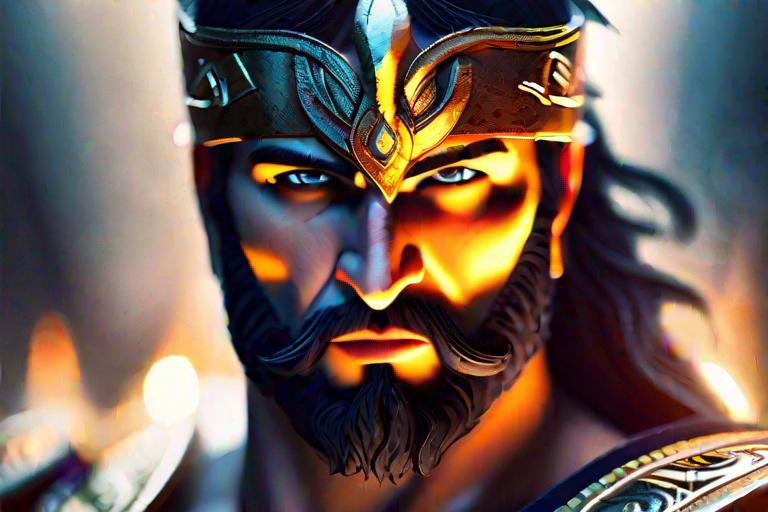
Ares, the formidable god of war and conflict, holds a powerful and often feared position among the Twelve Gods of Mount Olympus in ancient Greek mythology. As the son of Zeus and Hera, Ares embodies the ferocity and chaos of battle, reveling in the violence and bloodshed that accompany warfare.
Often depicted in a suit of armor and wielding a spear or sword, Ares exudes a menacing and aggressive demeanor, contrasting with the more strategic and disciplined approach of his sister Athena, the goddess of war. While Athena represents strategic warfare and valor, Ares symbolizes the destructive and brutal aspects of battle, often favoring chaotic and impulsive actions over strategy.
Despite his intimidating nature, Ares’s significance in Greek culture extended beyond the battlefield. As the god of war, he was venerated by warriors and soldiers who sought his favor and protection before engaging in combat. Battle cries and prayers invoking Ares were a common practice among the ancient Greek armies, as soldiers believed his support could tip the scales in their favor.
Ares’s influence was not confined to mortal warfare; he was also revered by the gods, participating in conflicts among the divine beings. However, his martial prowess was not without its limitations. Ares’s valor sometimes wavered in the face of stronger opponents, and he was often depicted as cowardly when faced with formidable adversaries, such as Athena or Hercules.
In addition to his warrior persona, Ares was associated with the raw and untamed forces of nature, particularly with animals like wolves and vultures, known for their savage and predatory nature. His thirst for blood and violence extended beyond the battlefield, as he was also involved in mortal affairs that sparked conflicts and feuds among humans.
Ares’s tumultuous love affair with Aphrodite, the goddess of love, further exemplified his tempestuous nature. The two were famously caught in an adulterous embrace by the sun god Helios, resulting in scandal and mockery among the gods. The coupling of Ares and Aphrodite symbolized the connection between love and war, where passion and desire could lead to both harmony and chaos.
Despite his warlike demeanor, Ares was not venerated as extensively as other gods like Zeus or Athena. Temples dedicated solely to Ares were scarce, and his worship was often intertwined with that of other deities, particularly in cities that emphasized strategic warfare over brute force.
In mythological tales, Ares often served as a foil to other characters, frequently being defeated by cunning or bravery rather than sheer might. His rivalry with Athena and his ultimate defeat in the Trojan War showcased the limitations of his belligerent nature.
Ares, the formidable god of war, represents the raw and violent aspects of conflict among the Twelve Gods of Mount Olympus. His intimidating and aggressive demeanor made him a feared figure in ancient Greek culture. Despite his significance in warfare and his role in divine conflicts, Ares’s reputation was complicated by his impulsive nature and vulnerability in battle. As a god embodying the brutal and chaotic nature of war, Ares’s legacy endures as a reminder of the untamed and unpredictable forces that shape human conflicts and the duality of violence and valor in the realm of battle.
Hermes

Hermes, the charming and swift messenger of the gods, holds a vital and versatile position among the Twelve Gods of Mount Olympus in ancient Greek mythology. Born to Zeus and Maia, a nymph of the Pleiades, Hermes displayed his precocious talents soon after birth. He was the god of commerce, travel, thieves, and boundaries, embodying the multifaceted nature of his domains.
As the divine messenger, Hermes possessed incredible speed and agility, effortlessly traversing the realms of gods and mortals. His winged sandals, called talaria, and his winged cap, the petasus, allowed him to travel between Mount Olympus, the mortal world, and the Underworld with unmatched swiftness. As a herald of the gods, Hermes relayed messages and decrees between the divine beings and also served as a guide for the souls of the deceased to the afterlife.
In addition to his role as a messenger, Hermes was the patron of commerce and trade. As the god of merchants and marketplaces, he protected merchants on their journeys, ensuring safe and successful trade. His favor was sought by traders and businessmen, and his name was invoked during commercial transactions, highlighting his significance in economic matters.
Hermes was also the protector of travelers and wayfarers, guiding and safeguarding those journeying through unfamiliar lands. As the god of boundaries, he was associated with the establishment and protection of borders, both physical and figurative. Pillars called Herms, topped with his head and often placed at crossroads, marked boundaries and provided protection to those passing through.
As a god with a mischievous side, Hermes was known for his cunning and wit. He was a skillful trickster, often playing pranks on both gods and mortals, much to their amusement or annoyance. One of his most famous exploits was his theft of Apollo’s cattle shortly after his birth, which showcases both his cleverness and his impish nature.
Hermes’s quick thinking and eloquence also earned him the title of the god of eloquence and oratory. He was known for his persuasive speeches and served as a mediator in disputes among the gods, skillfully diffusing tensions and bringing about resolutions.
Hermes was revered by various groups, including thieves and athletes. He was regarded as the patron of thieves due to his cunning nature, and criminals often sought his protection and guidance in their illicit activities. Moreover, athletes looked to Hermes for inspiration and luck, believing that he could bestow them with the agility and speed needed to achieve victory in competitions.
Temples dedicated to Hermes were widespread throughout ancient Greece, with the most notable being the Temple of Hermes at Mount Cyllene in Arcadia. Hermes’s festivals, such as the Hermaea and the Anthesteria, were celebrated with enthusiasm and marked by athletic competitions, feasting, and the exchange of gifts.
Hermes, the charming and swift messenger of the gods, holds a diverse and significant role among the Twelve Gods of Mount Olympus. His role as a divine messenger, guide, and protector underscores his importance in connecting the mortal world with the realm of the gods. As the god of commerce, boundaries, eloquence, and trickery, Hermes’s versatility and cunning nature make him a cherished and influential figure in Greek mythology. His legacy endures as a symbol of agility, resourcefulness, and adaptability, attributes that resonate with the human experience throughout history.
Hestia
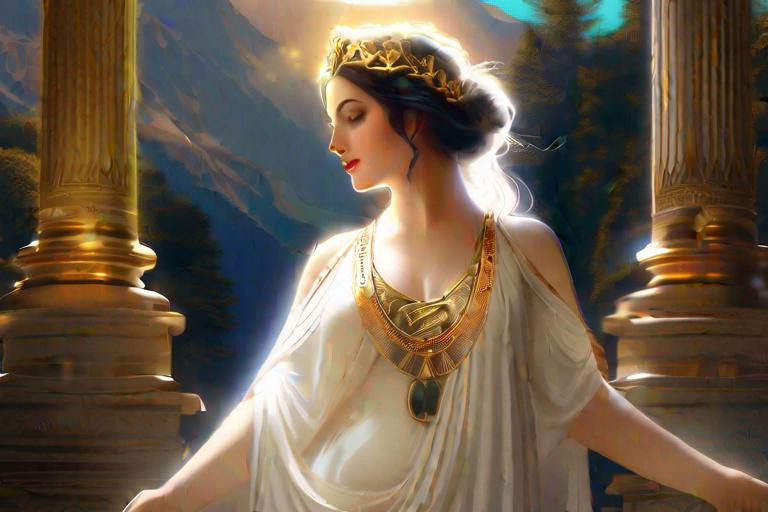
Hestia, the gentle and serene goddess of the hearth and home, holds a revered and essential position among the Twelve Gods of Mount Olympus in ancient Greek mythology. As the first-born daughter of Titans Cronus and Rhea, Hestia embodies the warmth and stability of the household, symbolizing the center of family life and community.
Hestia’s significance lies in her role as the goddess of the hearth, the sacred and central fireplace in ancient Greek homes. The hearth was not only the source of warmth and nourishment but also the spiritual center of the household, where offerings and prayers were made to ensure the well-being and prosperity of the family. Hestia’s presence was invoked at the beginning of every household ritual, signifying the importance of her benevolent protection over the home and family.
Unlike other gods, Hestia was not associated with grand temples or public ceremonies. Instead, her worship centered on the private hearth of every household, emphasizing her role as a domestic deity who presided over the intimate and personal aspects of life. Her humble and unassuming nature underscored the reverence and respect with which she was regarded in Greek culture.
Hestia’s peaceful demeanor extended to the divine council on Mount Olympus, where she was known for her impartiality and tranquility. As a peacemaker, she played a crucial role in diffusing tensions and conflicts among the gods, providing a harmonious atmosphere that promoted cooperation and understanding.
Her dedication to preserving the sanctity of the hearth and home was further exemplified in the myth of Poseidon and Apollo, who both sought her hand in marriage. Rather than accept their advances, Hestia chose to remain forever chaste and unmarried, symbolizing her commitment to her divine duties and the sacred nature of the hearth.
In ancient Greek cities, public hearths were also maintained in temples dedicated to Hestia, called prytaneia, where the sacred fire was kept burning perpetually. These fires represented the continuity of the city and were never allowed to extinguish, serving as a symbol of community unity and protection.
Hestia’s role as the hearth goddess extended to sacred spaces such as the city hall, where important civic and religious ceremonies were conducted. She was also revered during public gatherings and festivals, where her blessing was sought to ensure the prosperity and harmony of the community.
Although not as extensively depicted in art and mythology as other gods, Hestia’s serene and nurturing nature is evident in her representations. Often portrayed as a modest and graceful figure, she holds a torch or a staff, symbolizing the eternal flame of the hearth. Her tranquil presence embodies the peace and stability that she brought to the homes and hearts of the ancient Greeks.
Hestia, the gentle goddess of the hearth and home, stands as a symbol of domesticity, tranquility, and community among the Twelve Gods of Mount Olympus. Her role as the guardian of the household hearth and the unifying force of family life underscores her enduring significance in ancient Greek culture. As a deity revered for her unassuming and essential role in daily life, Hestia’s legacy endures as a cherished and nurturing figure, representing the heart and soul of the home.
Final Musings
As we conclude our exploration of the Twelve Gods of Mount Olympus, we find ourselves enchanted by the enduring allure and significance of these divine beings. Their rich tapestry of myths and legends has woven its way into the fabric of human culture, inspiring art, literature, and philosophy for millennia. From the heights of Zeus’s majestic rule to the hearth and home guarded by Hestia’s tender care, each god and goddess imparts a timeless lesson about the complexity of human nature and the forces that shape our existence.
As the ancient Greeks looked to the heavens and beheld Mount Olympus, they found in these deities a reflection of their own hopes, fears, and aspirations. The Twelve Gods stand as exemplars of the human experience, embodying both our noble virtues and our turbulent flaws. Their tales remind us that amidst the chaos and trials of life, there is an enduring thread of wisdom, beauty, and love that guides us through the labyrinth of existence. As we bid farewell to the realm of gods and return to our mortal world, let us carry with us the wisdom and inspiration drawn from the timeless pantheon of Mount Olympus, cherishing the gifts of knowledge, courage, and compassion they have bestowed upon us through the ages.


